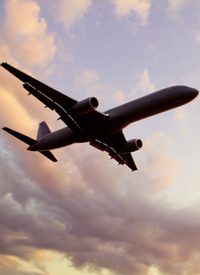
Fox News reports:
Under the new program — part of a nearly $1 billion national program called the Screening Passengers by Observation Techniques, or SPOT — behavior officers will ask passengers non-intrusive questions and look to see how passengers respond. Those who exhibit suspicious behavior like avoiding eye contact and struggling with answers will be pulled aside for more screening.
Approximately 60 TSA officers are scheduled for training on the new system. Boston will serve as a guinea pig of sorts for the Transportation Security Administration to determine if the program should be adopted at other airports as well.
"TSA has long recognized the value of a layered, threat-based approach to transportation security and the need to focus more of our resources on people who potentially pose a threat to aviation safety in addition to the system’s current focus on high-risk items," said TSA spokesman Greg Soule.
Soule adds, “The advanced training the officers receive includes both classroom and on-the-job experience designed to enhance their communication skills and engage in conversations with passengers to verify or dispel suspicious behavior and anomalies."
"The vast majority of passengers will experience a ‘casual greeting’ conversation with a behavior detection officer after they provide their ID and boarding pass," he said. "A small portion of passengers may get selected for an extended, but still limited conversation."
Israel’s airport security system is widely considered to the best in the world. As noted by Slate, “Terrorists haven’t penetrated Ben Gurion International Airport’s security since 1972.”
The difference between the way passengers in the United States and those in Israel are screened is that the United States treats all passengers the same, with the exception, of course, of those on the terrorist watch list. Slate explains the process of profiling at Israeli airports:
Israeli security … separates travelers into two groups before they ever get to an x-ray machine. All passengers waiting to check in speak to a polyglot agent. The agents, most of whom are female, ask a series of questions, looking for nerves or inconsistent statements. While the vast majority of travelers pass the question and answer session and have a pretty easy time going through security — there are no full-body scans, for example — between 2 percent and 5 percent of travelers get singled out for additional screening. The exact selection criteria aren’t publicly available, but ethnicity is probably a consideration.
Secondary screening can involve hours of questioning. Agents have been known to click through all of a traveler’s digital photographs. Body searches are common, and agents usually take luggage apart one item at a time.
There’s more to Israeli airport security than the secondary-screening selection process. Officials think of passengers as passing through a series of concentric circles, with increasing scrutiny as they get closer to boarding the plane. Agents also pay close attention to the parts of the airport that passengers don’t frequent. They monitor the fences around the airport’s perimeter with cameras at all times, and radar systems check for intrusions when the weather prevents the cameras from seeing. Security officials subject all vehicles to a weight sensor, a trunk x-ray, and an undercarriage scan.
Just how far the TSA will go to emulate Israeli airport security remains to be seen.
However, there are many who agree that the United States needs to reconsider its method of airport security for a variety of reasons (though not also lauding Israel’s equally intrusive screening methods).
For example, according to a new report released by the House Oversight and Government Reform Subcommittee on National Security, Homeland Defense and Foreign Operations, 25,000 airport security breaches have occurred at American airports since November 2001. Those breaches have ranged from minor incidents such as luggage accidentally being left behind, to more severe breaches like travelers bringing various weapons onto airplanes.
The Daily Paul reports that there have been 14,000 incidents of passengers entering secure areas without being cleared through TSA screening. Also, TSA agents have failed to properly screen passengers approximately 6,000 times, while 2,600 passengers somehow made it through security lines without undergoing proper screening.
Meanwhile, Americans are subjected to a loss of constitutional rights as a result of the TSA screening procedures. The enhanced pat downs and use of naked body scanners have been a source of contention for a number of passengers virtually since their inception.
It is for these reasons that Texas Congressman and Republican presidential contender Ron Paul has argued that the Transportation Security Administration should be dissolved and replaced with private security.
“It would make it efficient,” Paul said on Fox News’ America Live. “There’s no history to show that government bureaucrats are ever more efficient than the private market.”
Paul contends that the dissolution of the TSA would save taxpayer dollars and result in more effective security without an utter loss of privacy.
“If the private airlines were doing it, they might have one sniff dog that knows something about explosives and that’s all you would need, you don’t need all this other stuff,” Paul explained.
Ron Paul introduced the American Traveler Dignity Act in November 2010 to ensure that federal employees are not provided immunity for behavior that would otherwise be considered criminal. The act says:
No law of the United States shall be construed to confer any immunity for a Federal employee or agency or any individual or entity that receives Federal funds, who subjects an individual to any physical contact (including contact with any clothing the individual is wearing), x-rays, or millimeter waves, or aids in the creation of or views a representation of any part of a individual’s body covered by clothing as a condition for such individual to be in an airport or to fly in an aircraft. The preceding sentence shall apply even if the individual or the individual’s parent, guardian, or any other individual gives consent.
Paul’s bill has been referred to the House Committee on the Judiciary.




